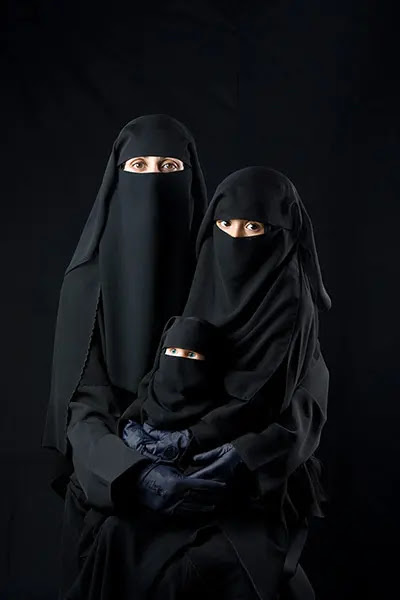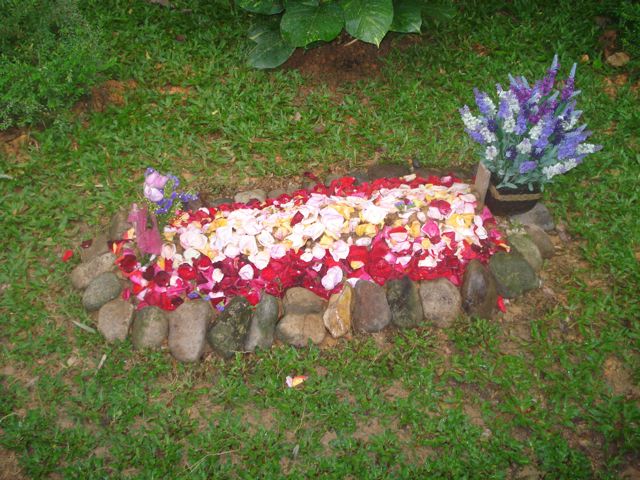2100: The Museum of Past Doctrines
2100: The Museum of Past Doctrines
Preamble
It's the dawn of the 22nd century, 50 years after the religious holocaust, and peace has taken hold.
Eziqa is five years old and visiting the Museum of Past Doctrines in Putrajaya with her grandma. The New World Order is in flux, driven strictly by secular values. Malaysia, a former Sharia-based nation, is 'comfortably numbed' in the matrix. It has flowered into a 'developed status' morally and economically. While it has matured into a vibrant financial centre, it is the region's most 'introverted' nation. Quiet, yet powerful.
Indoctrination of religion from birth is discouraged, but from the age of sixteen, teenagers schooled in moral studies, creationism, and science are allowed to make informed decisions to subscribe to the religions of their choice.
Given the day's flavour, little Iqa has developed an effervescent mind, and her questions to granny are equally challenging. She observes the artefacts within this 'hallowed space' with intense focus. It was her idea to visit the museum.
The conversation
Iqa: Grandma, what is the Museum of Past Doctrines?
Grandma: The museum highlights religions that humanity previously practised while consigning features deemed not in concordance with secular values to symbols. When I was your age, religious zealotry shook the world, drawing our beautiful nation into the centrifuge. Despite the bulwark within our multi-cultural and multi-religious fabric, we went down the tubes. It was inevitable.
Iqa: What you are saying, grandma, it was a "Mine Is Better Than Yours" scenario, not unlike how some children still behave, no?
Grandma: Bingo! Iqa, you have an innocent way of distilling a complex event and then simplifying it in two shakes.
Iqa: Explain those figurines up there. It looks like a man with a cloth on his head flanked by four women dressed in black from head to toe.
Grandma: When I was your age, it was common for a man to have multiple wives, up to four, i.e., The practice was called Polygamy. I used the past tense simply because our 'secularity' has relegated it to symbolise our past. It is no longer relevant. As for the abaya, the flowing black dress was designed not to accentuate the female contour and protect women's modesty, as perceived then.
Iqa: Did women willingly agree to this arrangement?
Grandma: Good question, Iqa, and a loaded one too. There is an old book called Wisdom of Crowds by James Surowiecki, where the author suggests that large groups tend to make unenlightened decisions that are accepted, drowning the enlightened view of a single member. The group then coalesces its groupthink into a single viewpoint, steered by those who cry the loudest rather than those who think the smartest. Our religion offered such 'wisdom,' and when coupled with a 'pliant crowd,' women became willing participants in this arrangement.
Iqa: Amazing, but it is a mouthful for my tiny 5-year-old brain. I need it simplified. I can't believe our past women behaved like unthinking 'zombies.' Understandably, 'divine' sanction played a role, but what made Polygamy work? Please give it to me straight up, grandma!
Grandma: Obedience and Discipline, period. These two features gave Polygamy traction and were the only ones that ensured Harmony. Is that straight enough?
Iqa: Heavens to Betsy! Safe to assume that fidelity and romance were polite fiction in your era. Safer to imagine old grandpa, God rest his soul, was firing on all four cylinders. Pardon the automotive pun, grandma. I could not resist.
Grandma: You are a complicated and naughty little thing, aren't you? Cynical as well! I agree fidelity was polite fiction in our polygamous environment. Still, given that I loved your grandpa to pieces, polygamous as he was, I assure you that our romance was in full bloom. Talking about grandpa brings tears to my eyes. Let's move on, Iqa, if you don't mind.
Iqa: Grandma, explain that figurine of the cow on the floor, with a knife beside it.
Grandma: It symbolises ritual slaughter, a practice we endeared to in the past, towards food consumption, unlike the painless and efficient 'assembly line' method we apply now. Anything else, Iqa?
Iqa: Thank you, grandma. The dawn of the new century has been enlightening. Besides, my pride in grandma's religion has received a boost. Placing the various dogmas in the private domain has preserved and protected them while keeping our secular fabric vibrant and diverse.
Peace!
Tommy Peters
Afterword: -
1. "If you love being taken to unfamiliar places by your imagination, you will have fun. But if you try to drag your imagination to where you want to go, then it's no fun for you" - Stephen King
2. Malaysians are considered polite, civil, and diplomatic and, given their propensity to bedtime stories, prone to fiction.
3. The character in the conversation is the alter-ego of a beautiful artist. Still, the animated simulation of her thought process is the imagination of the 'utopia' depicted in the narrative. It is assumed that the position portrayed by the charisma of her character is oblivious to her personality, but only when her persona is in conflict, and the author believes that such competition is rare.
4. The reason a responsible blog master in Malaysia employs moderation is that censorship and detention laws drill down to clamp the 'oblivious' poster, even if one responds without malice to whom the author is concerned.



.jpg)
Comments
Post a Comment